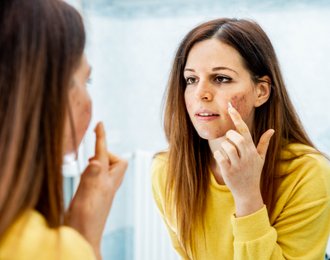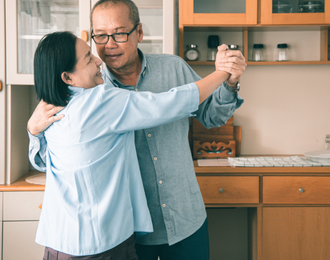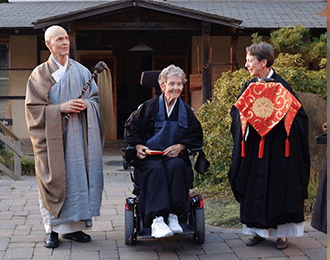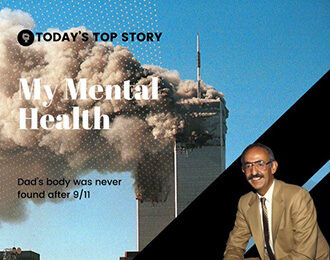Caregiving Was Already Hard; Covid-19 Made It Nearly Unbearable

Forbes Feb 2021
Author: Deb Gordon
Caring for a loved one with a long-term illness or disability is never easy. During the Covid-19 pandemic, unpaid family caregiving has taken an even greater emotional, physical, and financial toll on caregivers, according to a global study released today.
In the new EMD Serono Global Carer Well-Being Index, 64% of caregivers said caregiving has gotten harder during the pandemic and 20% reported becoming caregivers for the first time.
Adding insult to injury, 62% said the person they care for is not appreciative of their efforts.
The survey, part of the Embracing Carers initiative, was conducted in September 2020 with 9,044 caregivers across 12 countries in Asia, Europe, and the Americas.
Respondents reported spending more time providing care since the pandemic began—from an average of 17 hours per week before the pandemic to more than 24 since. In the U.S., caregivers spent even more time—21 hours before and 28 during the pandemic. Many expect the demands on their time to grow even more as the pandemic drags on.
Globally, 39% of caregivers said the person they care for relies on them more since the pandemic began. These increased demands were greatest in the U.S. (45%), Brazil (46%), Canada (48%), and the U.K. (48%).
Caregivers perform a multitude of healthcare and household tasks, but 65% reported their top responsibility is providing emotional support. Overall, 57% said providing emotional support has increased during the pandemic.
The Emotional Toll On Caregivers
For 61% of caregivers, the pandemic has worsened their emotional or mental health.
Half of caregivers said caregiving negatively impacts their social relationships. Approximately one-third said physical distancing has made them feel more isolated, that they have less time to spend with family and friends, and that they’re more worried that the person they care for will die.
Though 76% said connecting with other caregivers helps them feel better, only 17% do so as a way to improve their mental health.
Eighty-one percent of caregivers report having had to sacrifice more of their personal life for the person they care for during the pandemic; it’s worse for first-time caregivers (91%). The majority of caregivers (89%) said they’ve put the needs of the person they care for above their own.
The pandemic makes it hard for caregivers to get a break. Overall, 23% cited the inability to take a break as the biggest challenge they’ve faced.
According to Grace Whiting, president and CEO of the National Alliance for Caregiving, an advisor to Embracing Carers, respite care programs that provided relief for caregivers pre-pandemic aren’t available anymore. The layers of stress—from grief or anxiety, to family responsibilities, self-care, and work—create a “snowball effect” when typical avenues for support are closed.
Lisa Winstel, chief operating officer of Caregiver Action Network, another advisor to Embracing Carers, had her own pandemic caregiving experience when her 87-year old father was diagnosed with advanced pancreatic cancer. Covid-19 precautions prevented family members from traveling to help. “I couldn’t get relief,” she said.
Burn out is pervasive; 76% said caring for someone during the pandemic has made them feel more burned out than ever. First-time caregivers are struggling the most (86%).
Caregiving May Be Hazardous To Your Health
Caregivers’ selflessness may affect their own health. Nearly half (46%) said their physical health has deteriorated; 55% report sleeping less—including 62% of U.S. respondents—and 45% are exercising less.
Thirty-five percent overall and 45% of U.S. respondents reported putting off their own medical appointments.
“We see self-care then takes the backseat,” said Lynn Taylor, head of global healthcare, government and public affairs at Merck KGaA, Darmstadt, Germany, known as EMD Serono in the U.S. and the sponsor of the survey. “Caregivers not caring for their own health [and] putting their own health at risk…ultimately causes additional strain on the whole health care system.”
Taylor praised policies like one in Massachusetts allowing caregivers to get vaccinated if they’re accompanying an older person. She says looking out for the health of caregivers makes sense. “If they fall down sick with Covid, where are those 75 and older patients going to go?”
Winstel agrees that caregivers should be protected. “We are the front-line health worker in the home for our loved ones.”
The Cost Of Caregiving
More than half of caregivers (54%) said the pandemic has worsened their financial health as they face both increased costs and reduced incomes.
One-third reported spending more on supplies; more than half had higher food and medical equipment costs.
“The financial distress of caregiving is real,” said Winstel. “You could spend $7,000 to $10,000 on incontinence supplies. No one talks about it.”
At the same time, half the respondents believe caregiving negatively impacts their career. Twenty-one percent reported difficulty juggling their paid career with unpaid caregiving and 24% have had their paid working hours reduced.
Financial anxiety is pervasive; 56% of caregivers believe the pandemic will cause their household incomes to decrease and 71% are worried they won’t be able to afford to provide care.
According to Taylor, women—who are disproportionately responsible for caregiving—pay a steeper price when they are forced to leave the workforce or can’t advance their careers. “What can we do to protect them financially?” she asked.
Insufficient Support
Almost all (94%) caregivers said caregiving is not widely recognized in society, and most felt they don’t get enough support from their national government (57%), local or state government (56%), or their community (50%).
Most (96%) said health and social service systems should do more to support caregivers and 95% said employers should provide more flexibility policies for caregivers.
“There are still many employers who are not workplace policy friendly for caregivers,” said Taylor. She urges employers to offer flexible hours and continue to allow remote work. “These sorts of things make a huge difference for caregivers.”
There are broader cultural benefits of flexible employer policies, according to Taylor. “The willingness of employers or governments to talk about caregiving helps take away some of the stigma.”
The Silver Lining
Despite all the challenges caregivers face, 87% said that caregiving is rewarding.
Whiting says caregiving isn’t just about the long list of to-dos. It can bring people closer and give caregivers meaning and purpose.
“[Caregivers are] able to be there and be present in a way that maybe they weren’t a year ago,” Whiting said. “We have to accept that that caring for others is a fundamental part of the human experience.”





